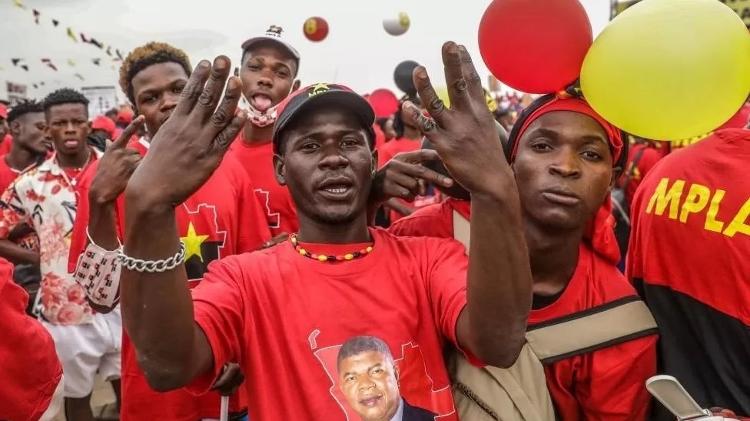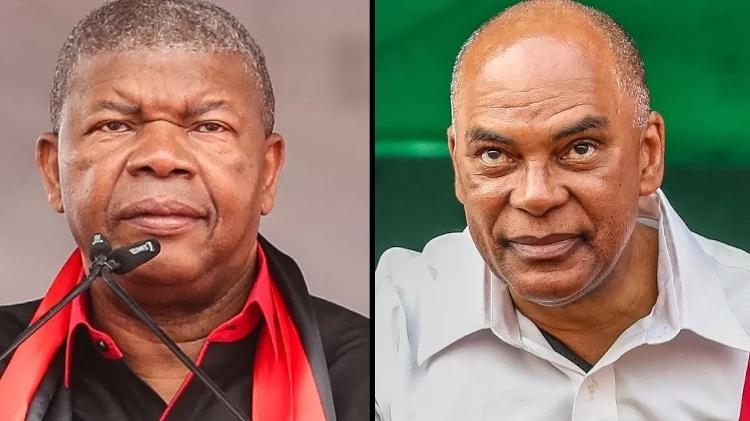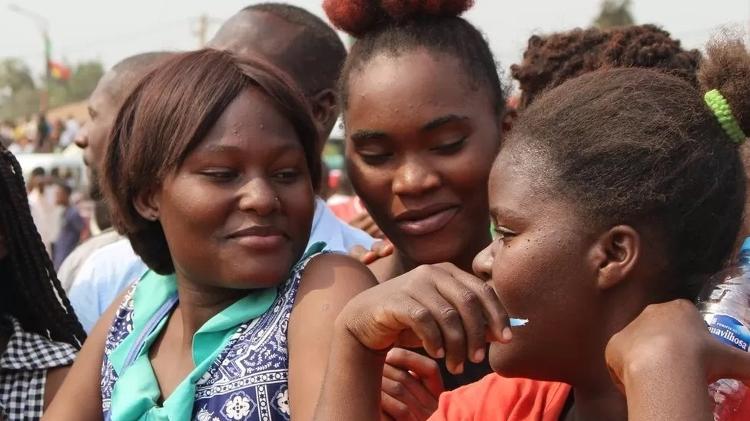Young population challenges the continuity of the MPLA party, which has been in power for over 40 years
After a day of voting, Angola began counting the votes in an election considered one of the most violent since the country declared independence in 1975.
The dispute over electing a new president must be settled between the main voice and the Popular Movement for the Liberation of Angola (MPLA), the party that has ruled the country for four decades, according to the latest polls released before the election. today the opposition is the National Union for the Complete Independence of Angola (Unita).
In total, eight parties are competing for the election race. The leader of the party with the most votes wins the most seats in the legislature and automatically becomes the president of the country.
With the MPLA at the helm for more than four decades, it’s hard to imagine that its leader and current president, 68-year-old João Lourenço, could lose his place. But his government is facing a growing wave of discontent fueled by high levels of poverty and unemployment.
- 10 interesting things that unite Angola and Brazil
- Fight for Universal temples in Angola leads to clashes with police
Although Angola is a country rich in oil and minerals, a large part of the population did not benefit from this wealth. And while 20 years of peace were welcomed after a protracted civil war, it did not yield the gains many had hoped for.
Lourenço’s main rival is 60-year-old Adalberto Costa Júnior. The representative of Unita, a rebel movement in the past, is trying to capitalize on public discontent. Multiple candidates vying for the MPLA may smash the opposition’s votes, but this time Unita has formed an informal coalition with civil society groups and activists to broaden its appeal.
voting day
The counting of the ballot boxes has already begun. The results will be sent to a polling station in the capital Luanda. By law, does the Election Commission have 15 days to announce the result? however, the count took less time in previous elections.
Irregularities in many provinces were denounced on social media, but the National Election Commission (CNE) declared that the vote took place without incident.
During the voting hours on Wednesday, the capital, Luanda, was seized by a strong police and armed military presence, intensifying the atmosphere of tension.
The city is also full of partisan propaganda. Large billboards with the faces of presidential candidates spread throughout the city, and on campaign days the streets were filled with music to attract voters.

Image: EPA
MPLA’s red, black and yellow colors dominate the streets with the slogan “People power”. Unita’s red and green colors can also be seen in some parts of the city with posters that read “The time is now”.
The last time an election was this close was in 1992, when then-President José Eduardo dos Santos faced off against Unita rebel leader Jonas Savimbi.
A dispute over the outcome led to the resumption of the country’s protracted civil war. This time, however, analysts believe the country has changed.
“Thirty years later, we can say that we have more active citizens in the electoral process, we analyze, criticize and condemn actions they deem wrong,” said researcher Cesaltina Abreu of the Catholic University of Angola.
teenage discontent

Image: EPA
The MPLA has been in power since 1975, when Portugal’s former colony gained independence.
But analysts say people are starting to imagine the possibility of a different party seizing power. “The general feeling is that the country is ready for something to change,” economist Aurea Mouzinho told the BBC. “People are much more mature and less afraid of wanting things to be different.”
The difficult conditions most people face, including rising hunger and extreme poverty, are challenging the party’s continuity. The unemployment rate in Angola is around 30%, but among young people this figure reaches 60% according to official statistics.
“What we’ve seen since 2017 is an objective deterioration of living conditions for everyone,” Mouzinho says.
“We’re seeing an economy that’s getting worse in terms of what it can offer people.”
The lack of some basic necessities such as clean water, electricity, education and access to health care worries many young people in urban and rural areas.
And they are in the majority as the average age in the country is just under 16.
But the MPLA is confident in what it can do for the Angolans. “We are convinced of a victory. By doing fieldwork and mobilizing people, we talk to them and measure what they say,” Arsénio Satyohamba, one of the MPLA’s youth leaders and aides, told the BBC.
Despite coming to power in 2017 with the promise of fighting corruption in both his own party and government, and creating 500,000 jobs for youth, Lourenço’s first term was rough and resulted in a significant decline in popularity.
“In 2017, João Lourenço brought a new perspective to the MPLA despite Angola’s economic depression due to various factors. He implemented some programs to stabilize our economy and today we see that happening,” Satyohamba said. “Aside from Covid-19 and other challenges, President Lourenço has also managed to improve our economy.”
movement for change

Image: BBC
Ana de Sousa, 22, a voter for Unita, has no doubt that the country needs change. “We don’t have jobs, we try to apply for jobs in public tenders but we can’t even do that,” she told the BBC.
“We have many children who need education and health”
24-year-old history student Lígio Katukuluka wants the voices of young people to be taken seriously. It is necessary to make the youth, who are in the majority in Africa, the protagonist of state decisions.”
“I feel that culture and education are very marginalized fields. I want more investment in the promotion of culture.”
“Our country has been at peace for 20 years, but many of the same problems persist,” said 34-year-old young businessman Cláudio Silva.
“Unita gets a lot of support [da juventude] because they offer a way out, an alternative to what we’ve been used to since independence.”
source: Noticias